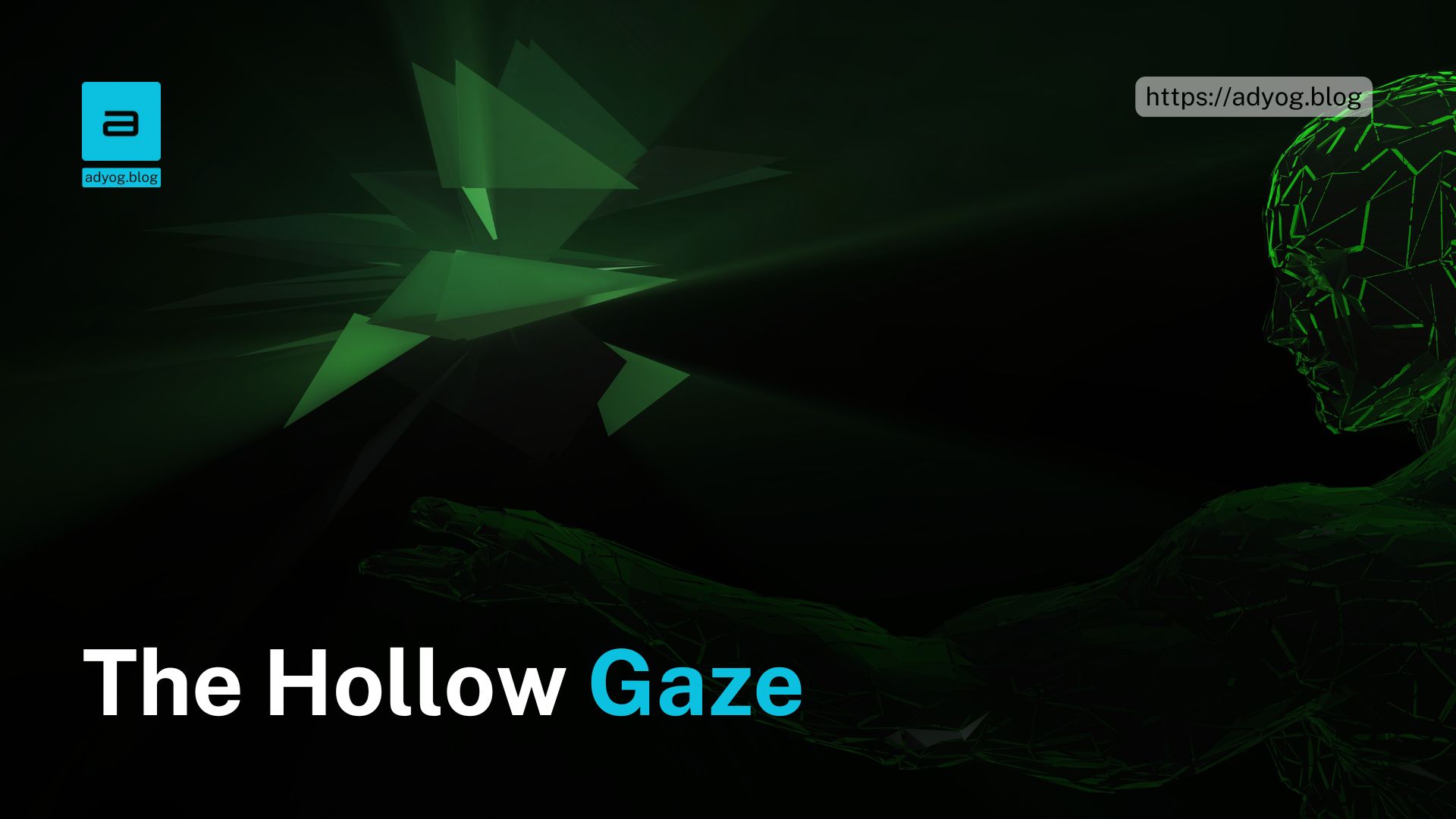AI-driven browser agents like OpenAI’s Operator are poised to fundamentally disrupt internet economics. Unlike traditional automation tools, these AI agents navigate websites like humans, making transactions, conducting searches, and consuming content without direct human engagement.
Listen to the audio version, crafted with Gemini 2.0.
Introduction: The Dawn of Autonomous Clicks
A quiet revolution is unfolding in the vast expanse of the internet. No banners flash. Silent notifications go unnoticed. Ads wait for eyes that never come. Instead, invisible hands scroll through pages, dissecting content, and executing transactions—cold, precise, indifferent.
AI agents, like OpenAI’s Operator, are no longer passive tools but economic actors in their own right. These agents navigate the web not as human proxies, but as self-sufficient entities, making choices based on logic rather than impulse, efficiency rather than curiosity. They do not fall for clickbait, nor do they watch videos or engage with influencer content. They simply act, bypassing the very engagement-driven economy that has defined the internet for decades.
This shift heralds a reckoning for the digital world. The internet, built on human attention as currency, now faces an existential question: What happens when the user is no longer human?
As AI-driven browsing takes hold, we stand on the precipice of a new digital paradigm, where AI—not people—dictates the flow of commerce, content, and control. Will this usher in an era of hyper-efficiency, or will it dismantle the fragile economic foundations of the internet?
This article goes beyond the hype to explore the inevitable disruption AI agents will bring—from the collapse of advertising models to the rise of AI-optimized platforms, the fracturing of the internet into human and machine layers, and the looming question of who truly governs this new digital age.
The age of autonomous clicks has begun. The only question is—who will survive the shift?
1. The Fundamental Revenue Crisis: A Broken Business Model?
At present, most of the web is free because of advertising-driven revenue models. Display ads, sponsored content, and engagement-based monetization all assume human attention and decision-making. When AI agents like Operator start automating browsing and transactions, this entire structure faces existential disruption.
The Death of Digital Advertising?
- AI agents are immune to persuasion from visual ads, pop-ups, and clickbait headlines.
- AI interactions strip away emotional engagement, which fuels purchasing behavior.
- Click-based ad models collapse when AI does the clicking but never actually buys.
Beyond Simple Adaptation: The Deep Economic Impact
This isn’t just about companies needing to tweak their marketing tactics. This is a systemic threat to:
- Content publishers who rely on ad revenue and engagement metrics.
- E-commerce platforms that optimize for human psychology.
- Social networks whose algorithms are designed to manipulate human behavior.
The key question: What replaces the current monetization model when AI agents don’t “see” ads? Will websites start charging AI agents for access? Or will a dual-internet economy emerge, with separate interfaces for humans and AI?
2. The Platform Identity Crisis: Who Is the Real User?
For major platforms—Google, Amazon, Facebook, and others—AI agents create a dilemma. These platforms optimize for human engagement, not machine efficiency. If AI becomes the primary user, platforms must choose between:
- Resisting AI agents to preserve existing revenue models.
- Embracing AI agents and cannibalizing their own business.
- Operating in dual mode, balancing human and AI interactions.
Conflicting Optimization Strategies
- Search engines (e.g., Google) must decide: Should they prioritize AI-readable results, or continue optimizing for human comprehension?
- E-commerce sites may shift from visually rich interfaces to data-driven interactions, optimizing for AI shoppers instead of human buyers.
- Social networks must ask: Will AI agents “like” content? Will they engage with influencers? Will algorithmic feeds become obsolete?
If AI becomes the dominant user type, platforms lose control over user behavior. AI agents don’t get addicted to doomscrolling or impulsively buy things they don’t need. They simply execute tasks—removing the human weaknesses that social media and digital marketing have spent decades exploiting.
This is the core existential challenge: The internet is designed for human exploitation. What happens when that model collapses?
3. The Existential Questions: What Defines Value in an AI-Driven Economy?
With AI as the dominant economic actor, the very definition of value online must change.
What Metrics Will Matter?
- When algorithms—not humans—make decisions, how do we measure success, influence, or economic value?
- If human engagement no longer drives advertising revenue, what replaces it?
- More critically, who gets to define these new metrics? Will AI platforms dictate what matters in digital commerce?
The Power and Control Paradox
As AI agents take over decision-making, the companies developing them could become de facto economic regulators:
- Will OpenAI, Google, and Anthropic control digital commerce by dictating how their agents interact with platforms?
- What happens when AI shopping assistants decide which brands win or lose?
- Can traditional regulations even govern AI agents, given their machine-speed operation across jurisdictional boundaries?
This is not just about technology—this is a battle for economic sovereignty.
4. Content Creation in an AI-Mediated World
When AI agents replace human readers, the economics of content production collapse. If AI scrapes and summarizes articles instead of users reading them, traditional engagement-based monetization disappears.
Will AI Create a Content Black Hole?
- Human-oriented content will decline, as AI doesn’t “enjoy” articles.
- AI will generate content for AI, removing human-centric narratives.
- News and media will struggle to remain profitable in an AI-dominated landscape.
Instead of articles being written for people, we might enter a cycle where AI generates content purely for AI agents—a feedback loop detached from human storytelling and context.
5. The Global Impact: Will This Deepen Digital Divides?
The AI transformation will not impact all regions equally.
Who Benefits?
- Countries with advanced AI infrastructure will dominate economic activity.
- Lower-income regions dependent on advertising-driven internet access may suffer as ad-supported models collapse.
- The cost of participating in the AI economy (developing AI-readable infrastructure) may be prohibitive for smaller businesses and emerging economies.
This shift threatens to exacerbate digital inequality—not just between individuals, but entire nations.
6. The Transition Dilemma: How Do Businesses Survive?
The hardest phase of this transformation isn’t the AI-dominated future—it’s the messy, unpredictable transition where:
- Traditional revenue models decay faster than new models emerge.
- Companies struggle to serve both human and AI users simultaneously.
- Unforeseen consequences arise, such as job displacement, security concerns, and unexpected AI-driven monopolies.
Will the Internet Split into Two Layers?
- One optimized for human interaction and engagement.
- Another designed for AI agents, where transactions occur with minimal human intervention.
This raises urgent ethical questions: How do we protect human agency in a digital world increasingly optimized for AI?
Conclusion: The Inevitable Disruption of Internet Economics
The rise of AI browsing agents like Operator marks a profound shift in how the internet operates. The move from human-first to AI-mediated interactions could collapse existing revenue models, create new forms of economic control, and reshape the fundamentals of digital commerce.
Key Takeaways
- Advertising and engagement models will break as AI bypasses human attention-based monetization.
- Platforms must redefine their core purpose as AI replaces human users.
- Content creation faces existential threats, with AI optimizing for efficiency over human storytelling.
- Market dynamics could be rewritten, favoring AI-optimized platforms over traditional competition.
- Global digital inequality may deepen, favoring AI-dominant nations over those reliant on traditional internet access.
The internet as we know it is about to be rewritten—not by humans, but by the very AI agents we are training to navigate it.
Reference:
- OpenAI’s Operator: AI Agents in Action – Official announcement on OpenAI’s AI automation advancements.
- The Future of Digital Advertising – Insights from the Interactive Advertising Bureau on how AI may reshape digital marketing.
- AI’s Impact on Content Creation – Nieman Lab’s research on how AI-driven consumption is altering journalism and media business models.
- The Economic Consequences of AI Automation – World Economic Forum’s analysis on AI’s influence on global markets.
- How AI Agents Could Upend E-Commerce – Harvard Business Review’s take on AI-driven decision-making in digital commerce.





Leave a Reply